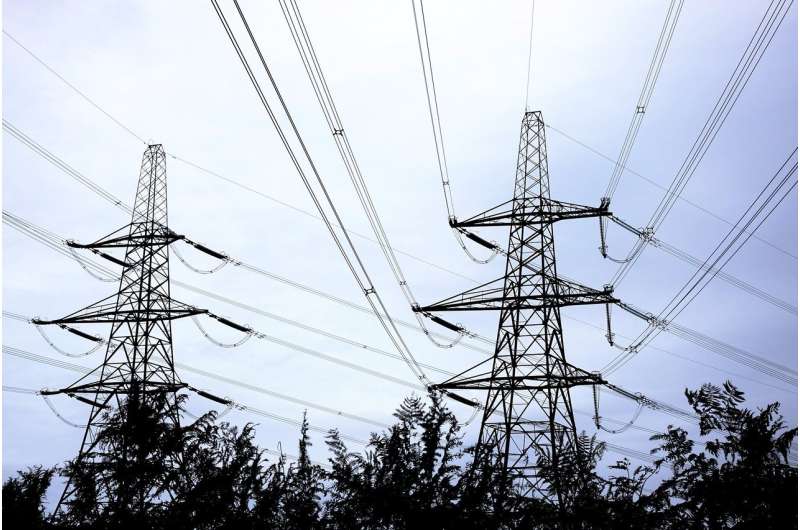This article has been reviewed according to Science X's editorial process and policies. Editors have highlighted the following attributes while ensuring the content's credibility:
fact-checked
trusted source
proofread
Researchers investigate how fuel cell-powered vehicles can reenergize overworked electricity grids

University of Waterloo researchers are tapping into idled electric vehicles to act as mobile generators and help power overworked and aging electricity grids.
After analyzing energy demand on Alberta's power grid during rush hour, the research proposes an innovative way to replenish electrical grids with power generated from fuel cells in trucks.
"Canada's power grids need to be upgraded," said Dr. XiaoYu Wu, lead researcher and a professor in Waterloo's Department of Mechanical and Mechatronics Engineering.
"But the price of Alberta's power grid is much higher than other provinces. Most power is supplied by fossil fuels which results in high carbon emissions. The need to rapidly adjust generators to meet fluctuating demand is one of the reasons that the grid price is unstable and volatile. This creates the potential for clean energy storage to flatten the demand and price of electricity."
The team's research builds on vehicle-to-grid technology which employs special chargers to push unused energy from electric vehicle (EV) batteries back to the power grid for storage. This electricity in-storage can support the grid during weather-related outages or to reduce the demand during peak periods.
The research proposes paying drivers of fuel cell-powered trucks to rest during rush hour and while resting, to plug into a hydrogen refueling station or pipeline and use their trucks' idle fuel cells as generators to provide electricity to the grid. The result is less vehicle traffic on highways, reduced energy use at peak times and a cleaner way to store energy.
Waterloo graduate student Daniel Ding developed a mathematical model to simulate the operation, then used software to analyze and model the feasibility and potential of hydrogen fuel cell-powered electric vehicles to balance the grid load and decrease the peak price and carbon intensity.
"Hydrogen fuel cells offer advantages over other fuels like batteries which require more investment and pollute more when you dispose of them," Ding said. "Our preliminary findings show that using existing fuel cells in electric vehicles of the future can decrease costs on the grid."
This energy storage solution has applications beyond trucks. Heavy-duty vehicles and trains—like switcher locomotives that typically are idled until they're needed to change train routes—could also be early adopters.
"With the increasing demand to decarbonize heavy-duty vehicles, the fuel cell electric vehicle fleet is expected to expand rapidly," said Wu.
"Connecting these trucks to the grid for the peak-shifting purpose may provide economic incentives for adopting hydrogen fuel cell electric vehicles and help facilitate the emergence of a large-scale hydrogen economy."
The researchers' next steps plan to test these preliminary findings in the lab and the field to determine their real-world applicability.
The research is supported by the Transition Accelerator, Mitacs and the Natural Sciences and Engineering Research Council of Canada (NSERC). It is the latest in Waterloo's Sustainable Futures Initiative which aims to make the University a global leader in sustainability research, education and innovation to benefit the environment, economy and society.
More information about this work can be found in the research paper, "Optimization of Fuel Cell Electric Vehicle-to-Grid in Alberta by Mixed Integer Linear Programming", published in 2023 IEEE 11th International Conference on Smart Energy Grid Engineering (SEGE).
More information: Daniel Ding et al, Optimization of Fuel Cell Electric Vehicle-to-Grid in Alberta by Mixed Integer Linear Programming, 2023 IEEE 11th International Conference on Smart Energy Grid Engineering (SEGE) (2023). DOI: 10.1109/SEGE59172.2023.10274585















